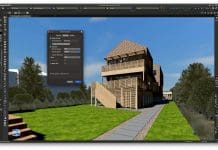In this article, Elizabeth Kavanagh, head of HR, innovation and research at Stride Treglown, examines the shift in our roles due to the culture change required by the move towards a digitalised construction sector and a more collaborative culture
As we move rapidly towards a digitalised construction sector where we use VR with stakeholders to engage them with design, use wearables on site to improve safety and harness sensor data to monitor and manage our assets, we need to consider our roles in the industry and how we relate to each other.
The process of digitalisation provides a great opportunity to work in a transparent way with each other, sharing data and using new ways of working to collaborate as a team.
Digital Built Britain, the successor to the BIM Task Group, sets out an ambitious programme to digitalise that will change the culture of our industry. In order to take advantage of our skills as digital construction professionals, it seeks to establish a collaborative culture enabling us to continually evolve ourselves and our ways of working.
In order to capitalise on this, each of us can begin to prepare ourselves with the skills and behaviours required within a digital environment. As we journey towards a more collaborative way of working, what success looks like for each one of us will also emerge.
Are you seeing a move towards collaboration within your firm?
We are starting to see tendering processes require us as bidders to outline our collaborative capability and also to highlight our collaborative behaviours and how they are developing. While this is formative at present, we can readily anticipate a time where this is a core requirement of us as designers.
What skills are required for collaboration?
As we digitise, the skills most in demand will be in common with other industries, which include for example cognitive flexibility and adaptability in the way we learn and approach issues, along with the emerging priority for a greater reliance on emotional intelligence.
Emotional intelligence is particularly important when working in a collaborative team as this requires us to be able to raise and deal with conflict. Emotional intelligence means an ability to manage my own emotions, to recognise the emotions of others and to use social intelligence to manage the situations this creates.
Can I develop my emotional intelligence?
Your emotional intelligence is something you can reflect upon, test and ultimately grow through conscious effort, so the good news is that we can all develop our emotional intelligence.
If you want to get ahead, you could start this journey using a great assessment resource book from the Institute for Social & Emotional Intelligence. This is a self-assessment that also gives development tips and points you towards further resources.
What skills do I need in the AECO sector?
My assumptions about the nature of my work change as I move from an environment that reinforces individual working and towards an environment that is team-centric. For example, I would need to abandon my need to be right in favour of focusing on listening to the views of others and learning from experience. This need can be hard to defeat when we have been schooled to respond to a question with a justification for our reasoning; often the ‘Why’ is less important than ‘How’ we now deal with the situation.
My behaviour as a team member changes
As an individual, we know that we need to move towards being more open, managing trust and communicating on a level that others can understand. We also need a mindset shift about what “our work” is, as my outputs become your inputs. This shift requires me to work with you to define how we will approach our work and agree the process collectively.
My behaviour as a leader changes
We know that those who work in collaborative teams require a different style of leadership that is characterised as an “enabling rather than a directive style”. In other words, we ask rather than tell; we empower others and focus on the relationship as well as the task in hand. It is also true to say that more of us use leadership and followership throughout the course of a collaborative relationship.
My behaviour as a client changes
The power distance between client and team will shift as the client organisations come to view their relationship with their supply chain as that of a partner. I have already seen this starting to occur and am currently advising on two such relationships where the client is seeking to build their relationships with their supply chain in order to innovate and deliver better results for their clients. Encouragingly, there is a willingness there to share the benefits of the collaboration so the incentives are there and the relationship can be sustainable.
Elizabeth Kavanagh
Head of HR, Research and Innovation
Stride Treglown
ElizabethKavanagh@stridetreglown.com
Twitter: @Beh4Coll
Twitter: @ElizabethKavan6














